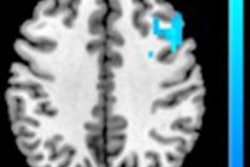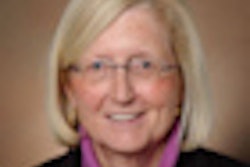Job satisfaction runs fairly high among radiology residency program directors, but many complain about a lack of money, the intense workload, and the onerous requirements of the Accreditation Council for Graduate Medical Education (ACGME), according to a study in the February American Journal of Roentgenology.
The survey found that program directors experienced higher job satisfaction levels when they had positive interactions with residents and the feeling of being valued by colleagues, wrote the research team from Monmouth Medical Center in Long Branch, NJ. Salary and a lack of program resources were cited as concerns, while the greatest source of dissatisfaction appeared to be from ACGME regulations.
Despite an overall high rate of job satisfaction, "there is dissatisfaction with regard to compensation, which may be sex-based, and frustration with the ACGME, namely in the constant additions and modifications that are being made to residency requirements," wrote Dr. Richard Ruchman and colleagues (AJR, February 2013, Vol. 200:2, pp. 238-247).
A job of myriad responsibilities
The job of the residency program director is "multifaceted and complex," the authors wrote. It hasn't been studied extensively, but it should be, with its various responsibilities ranging from curriculum development to selecting, training, and disciplining residents, as well as preparing them for the boards.
"I think the people who become program directors and want to stay in the job are a very committed group of individuals who have a passion for teaching and want to transmit that passion to a generation of radiology residents," Ruchman, who is chairman and program director in the department of diagnostic imaging at Monmouth Medical Center, told AuntMinnie.com. "They find a tremendous amount of personal satisfaction within that job, so in a way it's kind of despite the difficulty of the job that there's a great deal of idealism."
The position has become much more difficult since Ruchman became a program director 23 years ago, he said, and as a result, a common feeling among those in the job is that its demands have become increasingly difficult to fulfill.
Few studies have considered radiology program directors specifically, but informal discussions suggest that the turnover rate is higher in radiology than in other specialties. This is presumed to be due to a combination of factors, including the multifaceted nature of the job, as well as the restructuring of certification as set forth by ACGME, an issue that is ongoing in 2013 as the new certification requirements are put in place, Ruchman said.
The researchers' anonymous survey, created with online survey generator SurveyMonkey, was sent to current program directors in ACGME in January 2011, with a follow-up letter sent a week later.
"By focusing a study specifically on current radiology program directors, we aimed to identify the factors contributing to job satisfaction or dissatisfaction and to see how they relate to job turnover," wrote Ruchman and colleagues Dr. Andrew Kwak, Joseph Jaeger, and Anthony Sayegh.
The questionnaire was divided into several sections: The first dealt with demographic and personal information. Next were questions dealing with the length of time the respondent had held the position and how long he or she planned to continue in it. These were followed by questions on job satisfaction, available resources, compensation, and the potential for promotion. Finally, there were questions on overall job satisfaction and perceived burnout, along with a section on specific issues faced by the program directors. Length of responses was not limited, the authors noted.
Of a total of 187 ACGME-sponsored programs, the study team received full responses from 112 program directors (75 men and 36 women). Most worked for large or medium-sized departments; 96% were from academic institutions. About 40% were chief of a service, with approximately 15% serving as department heads. About one-fourth were professors, and another one-fourth were associate or assistant professors. The mean length of service was 6.9 years.
More than half (53%) rated global job satisfaction as high, while only 6% said job satisfaction was low, though 24% reported moderate or high degrees of burnout.
Job satisfaction was correlated with intent to stay in the job. In all, 64% were not considering resigning, compared with 13% who were definitely planning to leave.
"Almost universally, program directors reported that positive interactions with residents increased job satisfaction," Ruchman and colleagues wrote. More than 84% believed that residents responded positively to their management style, and more than 98% said they were more stimulated to learn when they were teaching residents, considering themselves mentors.
Colleague relations were strong, with 88% of respondents feeling valued, and 90% feeling that the department chairman valued their work. Yet only 48% believed they were adequately compensated for their work. Only 41% said they were given sufficient time and resources for professional development. Just under half thought that research requirements for promotion were appropriate.
The position of program director was the goal for 73% of respondents, while 27% saw the position as a stepping stone to a better job.
With regard to ACGME, 86% believed that ACGME regulations were excessive, and 72% felt that its regulations change too frequently. A total of 17 (47%) free-form comments, the most on any subject, pertained to dissatisfaction with ACGME.
Seven commenters said that an increase in clinical workload makes it difficult to balance clinical and academic work and research. The next-highest number of comments pertained to program resources.
The lack of resources is "a big problem because there's less and less money in the system and we're competing for scarce resources," Ruchman said. "Hospitals have budget and Medicare cutbacks, so it makes it difficult to fund a lot of initiatives, and we're trying to increase those resources going forward."
Interestingly, 54% of respondents agreed that "anonymous forums and surveys, such as those found on AuntMinnie.com and sent out by the ACGME, can damage a program or program directors without recourse," according to the study authors. Eighteen percent disagreed, and 28% were neutral on the question. Ruchman said that comments pertaining to AuntMinnie.com may be a reflection of participants' experience with anonymous comments in the forums that can be unfairly negative and harmful to reputations.
Causes of burnout
As for burnout among program directors, the causes are "likely multifactorial," Ruchman and colleagues wrote. Gender did not appear to play a significant role in perceived burnout, reported by 6% of respondents, but years of service did, with the longest-serving directors reporting the highest levels.
Women were statistically more satisfied with their jobs than men, with 59% reporting high satisfaction compared to 51% of men. The difference in job satisfaction between the genders is an interesting finding that merits further study, Ruchman said.
"It is clear that correlated with the results of the facet-specific portion of the survey, the factors contributing most to high levels of job satisfaction are mentoring residents, teaching, and feeling valued by colleagues," the authors wrote. "As one respondent stated, 'the good things [about being program director] are: meaningful and important work, relationships with residents and education-minded faculty members, the opportunity to advocate for residents and to facilitate their career growth, [and] a way to really serve the department and hospital as well as our profession.' "
Fewer than one-third of respondents found residents' attitudes difficult to deal with, while 42% disagreed that attitudes were a problem and 28% were neutral. "These results suggest that program directors highly value their roles as mentor and educator regardless of the individual attitudes of residents," Ruchman and colleagues wrote.
Respondents repeatedly stated their unhappiness with overregulation, micromanagement, and excessive paperwork, they noted.
"One respondent went so far as to state that, 'bureaucracies and oversight agencies of the residency training programs are the primary reason why administering to training programs [is] a major source of burnout and fatigue," they wrote. "Although well meaning, the ACGME and pressure from Medicare and public watchdog agencies will destroy medical education by inundating us with too many restrictions, regulations, and overdocumentation.' "
A second respondent complained that ACGME's "overregulation and micromanaging have created an inverted pyramid and are probably the single biggest difficulty in managing my program. Even the residents resent the ACGME."
"The fact is that the ACGME supervises what we do, they make rules we have to live with, and lots of the difficulty of this job is complying with those rules," Ruchman said. "The rules are more difficult to comply with now -- though you can say on the other side that there is much greater stress in all of society toward accountability and transparency, and that ACGME is reflective of that. The requirements that are being placed on program directors also reflect those trends, and it just makes the job more difficult."



















